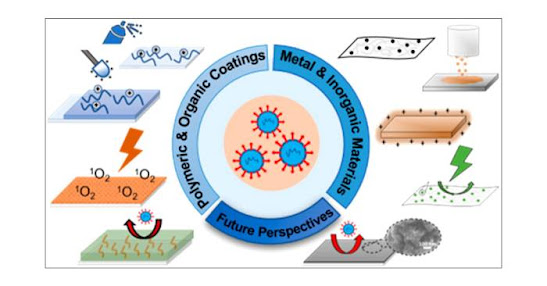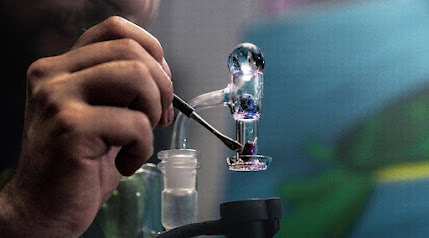Physicians are essential members of society. They play a vital role in indorsing health, preventing disease, and if care for those who are sick.
Some of the specific ways in which physicians contribute
to society include:
Diagnosing and treating diseases. Doctors use their medical
knowledge and skills to diagnose and luxury a wide range of diseases, from
common colds to serious diseases. They also deliver preventive care, such as
vaccinations and screenings, to help people stay healthy.
Providing comfort and support. When people are sick, they
often need emotional support as well as medical care. Physicians can provide
this support by listening to patients' concerns, answering their questions, and
helping them to understand their treatment options.
Educating the public about health. Physicians play an
important role in educating the public about health. They can do this through
public speaking, writing articles, or providing information on their websites.
Advocating for patients. Physicians can advocate for
patients by working to improve access to healthcare, ensuring that patients
receive quality care, and protecting patients' rights.
In short, physicians play a vital role in society by
promoting health, preventing disease, and providing care for those who are
sick. They are essential members of our communities and their contributions are
greatly appreciated.
Here are some additional specific examples of the
importance of physicians in society:
Physicians help to control the spread of disease. They do
this by diagnosing and treating illnesses, conducting research, and educating
the public about health.
Physicians help to improve the quality of life for people
with chronic conditions. They do this by providing care, managing symptoms, and
helping patients to live as normal a life as possible.
Physicians help to save lives. They do this by providing
emergency care, performing surgery, and treating life-threatening illnesses.
The importance of physicians in society cannot be
overstated. They are essential to our health and well-being, and we are all
grateful for their hard work and dedication.
What are the seven roles of physicians?
The seven roles of physicians are:
Medical expert: Physicians use their medical knowledge and
skills to diagnose and treat diseases. They also deliver preventive care, such
as vaccinations and screenings, to help people stay healthy.
Collaborator: Physicians work with other healthcare
professionals, such as nurses, pharmacists, and social workers, to provide
comprehensive care to patients. They also collaborate with other physicians,
researchers, and policymakers to improve the quality of healthcare.
Communicator: Physicians communicate effectively with
patients, families, and other healthcare professionals. They use clear and
understandable language to explain medical terms and procedures. They also
listen carefully to patients' concerns and answer their questions.
Manager: Physicians manage their own practices and work
within the healthcare system. They are accountable for hiring and managing
staff, ordering supplies, and managing finances.
Health advocate: Physicians advocate for the health of their
patients and the public. They work to improve access to healthcare, ensure that
patients receive quality care, and protect patients' rights.
Scholar: Physicians stay up-to-date on the latest medical
knowledge and research. They participate in continuing education programs and
read medical journals. They also conduct research to improve our understanding
of diseases and to develop new treatments.
Professional: Physicians are ethical and responsible
professionals. They uphold the highest standards of medical care and conduct
themselves in a professional manner.
These seven roles are essential to the practice of medicine.
Physicians who excel in these roles are able to provide the best possible care
to their patients.
Here are some additional details about each of the seven
roles:
Medical expert: Physicians use their medical knowledge and
skills to diagnose and treat diseases. They also provide preventive care, such
as vaccinations and screenings, to help people stay healthy. This role requires
a deep understanding of anatomy, physiology, pharmacology, and other medical
sciences. Physicians must also be able to think critically and make sound
judgments.
Collaborator: Physicians work with other healthcare
professionals, such as nurses, pharmacists, and social workers, to provide
comprehensive care to patients. They also collaborate with other physicians,
researchers, and policymakers to improve the quality of healthcare. This role
requires strong communication and interpersonal skills. Physicians must be able
to work effectively with others and build relationships.
Communicator: Physicians communicate effectively with
patients, families, and other healthcare professionals. They use clear and
understandable language to explain medical terms and procedures. They also
listen carefully to patients' concerns and answer their questions. This role
requires strong listening and speaking skills. Physicians must be able to build
rapport with patients and their families.
Manager: Physicians manage their own practices and work
within the healthcare system. They are responsible for hiring and managing
staff, ordering supplies, and managing finances. This role requires strong
organizational and leadership skills. Physicians must be able to set priorities
and manage their time effectively.
Health advocate: Physicians advocate for the health of their
patients and the public. They work to improve access to healthcare, ensure that
patients receive quality care, and protect patients' rights. This role requires
a strong commitment to social justice. Physicians must be willing to speak out
on behalf of their patients and the public.
Scholar: Physicians stay up-to-date on the latest medical
knowledge and research. They participate in continuing education programs and
read medical journals. They also conduct research to improve our understanding
of diseases and to develop new treatments. This role requires a love of
learning and a commitment to lifelong learning. Physicians must be curious and
willing to challenge the status quo.
Professional: Physicians are ethical and responsible
professionals. They uphold the highest standards of medical care and conduct
themselves in a professional manner. This role requires a strong moral compass
and a commitment to ethical behavior. Physicians must be honest and trustworthy.
The seven roles of physicians are essential to the practice
of medicine. Physicians who excel in these roles are able to provide the best
possible care to their patients.
.jpg)



.jpg)






